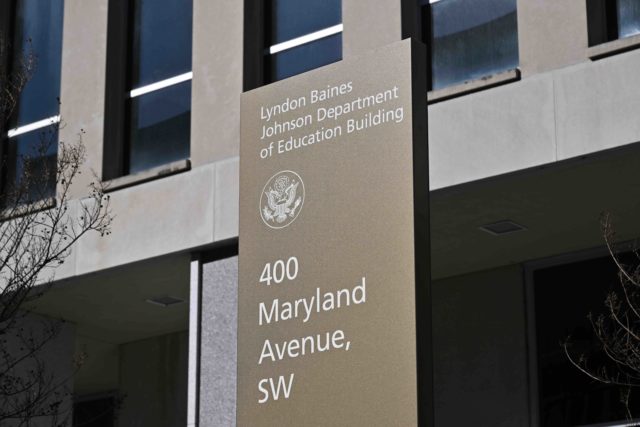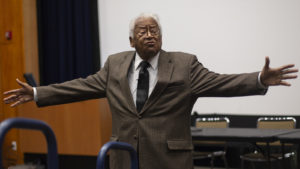Experts said higher education changes proposed by the Trump administration could undermine the strength of the American university system.
President Donald Trump has promised to end diversity, equity and inclusion initiatives in schools and threatened to eliminate the Department of Education itself. Linda McMahon, Trump’s nominee for Secretary of Education, said during her Senate confirmation hearing that she would work to find a “remedy” for the education system’s consolidation of power in the federal government.
Trump’s executive order focusing on DEI initiatives is vague when it comes to defining what constitutes a DEI effort, said Lucrecia Santibañez, a professor at the UCLA School of Education and Information Studies. This lack of clarity makes the course of action for universities with DEI offices unknown, she added.
“The legality of a lot of these things is in question,” she said.
Joseph Bishop, the co-founder and executive director of the UCLA Center for the Transformation of Schools, said because of California’s diversity, all youth-serving programs could theoretically be categorized as DEI programs – making the executive order what he described as a “slippery slope.”
Gary Orfield – a distinguished research professor of education, law, political science and urban planning – said the Trump administration wants to radically change American higher education through curriculum and selection of students and faculty. Orfield added that he views these changes as an attack on American higher education and academic freedom and that they will eventually lead to a regression in civil rights.
“I’m 83 years old, and I’ve been involved in it for 60 years,” Orfield said. “They’re trying to push us backwards to before the civil rights revolution took place, back to the kind of policies we had at the end of the 1800s.”
Orfield also said he thinks these changes by the Trump administration are motivated by a belief that racial discrimination has been eradicated in America.
“They don’t really accept the fact that we have an unequal society,” Orfield said. “They believe it’s their mission to take down everything that could possibly affect the racial composition of schools and colleges and to prevent students and faculty from spending efforts to … learn about racial inequality in this society.”
Santibañez said higher education institutions may now use extra caution surrounding the labeling of DEI efforts. However, adherence to the values of diversity, equity and inclusion may remain in specific schools under a new name, she added.
She said the School of Education and Information Studies’ Office of Justice, Equity, Diversity and Inclusion will remain unchanged unless the school receives conflicting guidance from UCLA.
Santibañez also said she believes the Trump administration’s focus on DEI as a nationwide issue in education is misplaced.
“I don’t agree that the focus on DEI – the focus on certain issues that have to do with social issues or cultural issues – is really going to be changing anything structurally in the way it needs to change to really make us have a better education system,” she added.
DEI is not the only part of the education system that the Trump administration seeks to change. The president is preparing an executive order to dismantle the Department of Education, according to the Associated Press.
Trump has also tasked Elon Musk’s Department of Government Efficiency – an agency established through an executive order signed Trump’s first day in office – with “streamlining” aspects of the federal government, including the education system.
[Related: UCSA suit agreement halts Department of Government Efficiency student data access]
Bishop said because there is not a federal right to education in America, dismantling the Department of Education would be extremely detrimental to the country.
Santibañez said she believes Trump’s proposals to change education in America primarily play to his base of supporters rather than improve the system. She added that Trump’s actions could undermine an otherwise robust university system that supports disadvantaged groups.
“We have one of the strongest university systems in the entire world,” Santibañez said. “I’m not really sure there’s a lot fundamentally wrong with it, because the facts are that our universities are doing great.”





Comments are closed.